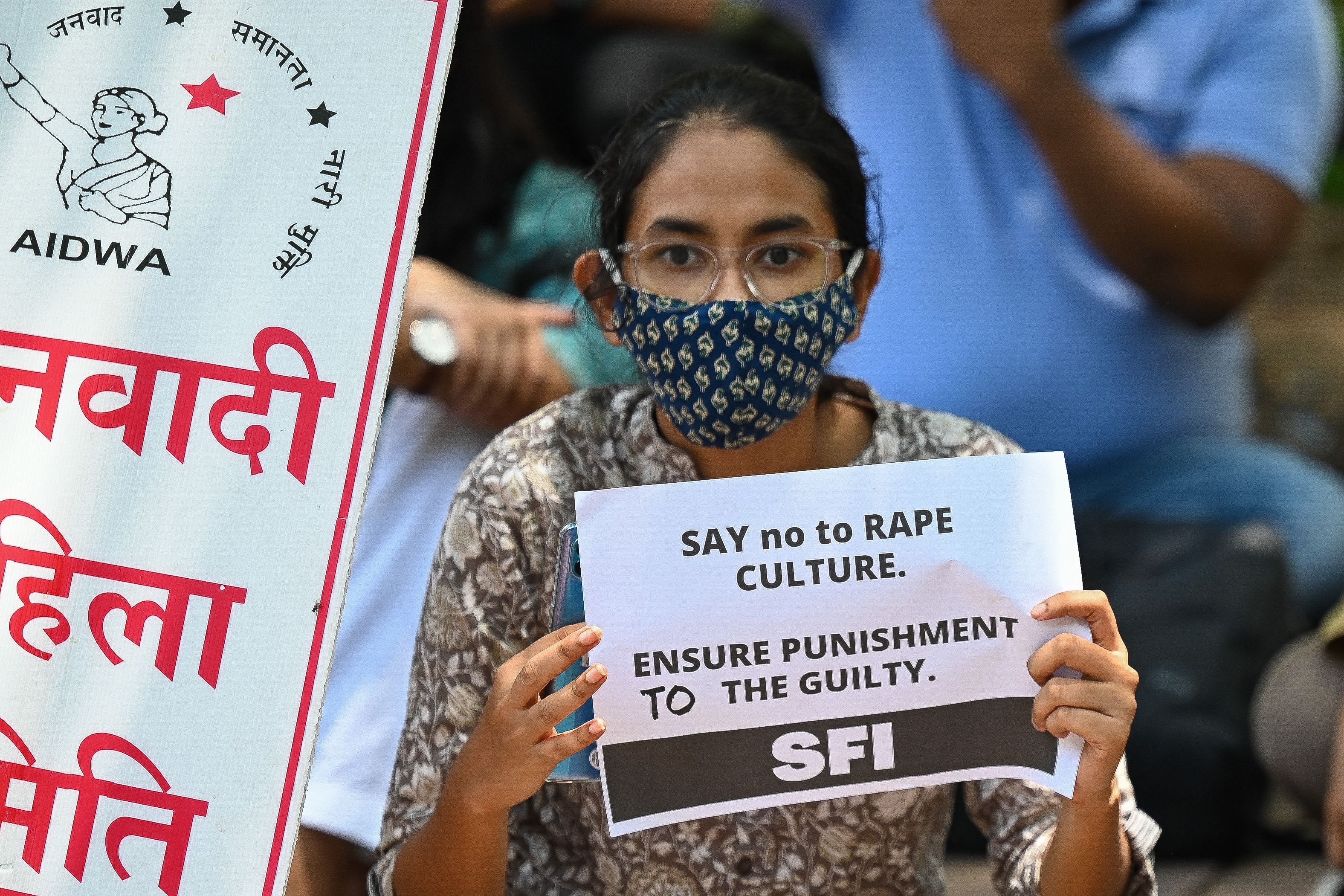Is it really up for debate that men can’t force their wives into sex?
The fight for women’s bodily autonomy, once thought to be set in stone, is coming under attack around the world


Your support helps us to tell the story
From reproductive rights to climate change to Big Tech, The Independent is on the ground when the story is developing. Whether it's investigating the financials of Elon Musk's pro-Trump PAC or producing our latest documentary, 'The A Word', which shines a light on the American women fighting for reproductive rights, we know how important it is to parse out the facts from the messaging.
At such a critical moment in US history, we need reporters on the ground. Your donation allows us to keep sending journalists to speak to both sides of the story.
The Independent is trusted by Americans across the entire political spectrum. And unlike many other quality news outlets, we choose not to lock Americans out of our reporting and analysis with paywalls. We believe quality journalism should be available to everyone, paid for by those who can afford it.
Your support makes all the difference.We stand at the cusp of a defining moment in history, one in which our courts are set to turn back decades of feminist progress made by our foremothers to get us the rights we enjoy today. The fight for our bodily autonomy, once thought to be set in stone, is coming under attack around the world.
On 11 May a High Court in New Delhi delivered a split verdict in a case that sought to criminalise marital rape. One of the judges upheld an exception in the country’s rape law that protects married men from criminal prosecution for having non-consensual sex with their wives. He justified it with disturbing hyperboles about the “institution of marriage”. Enraged women’s rights activists say marriage should not offer protection to rapists in a country where thousands of women are forced into wedlock daily, often against their wishes.
In Afghanistan, the Taliban are systematically and deliberately dismantling women’s rights: their right to education and self-expression under the brutally misogynistic rule, taking back whatever little progress was made during the past decade. Afghan girls and women – already kept out of schools and colleges and denied the right to drive – will now have to mandatorily cover their faces in public.
Simultaneously, Muslim women in India are fighting for their right to wear the hijab at schools and universities and in some instances they were being forced to take them off by authorities, often in the middle of busy streets.
In America, women’s legal right to abortion — which is directly linked to several metrics of their overall welfare — faces severe threat if the US Supreme Court overturns Roe v Wade. That would force women, especially those not in liberal states, to carry unwanted pregnancies to term, endangering their life and liberty, enslaving many in a life of poverty and regress.
These incidents should be a cause of deep concern as dangerous conservatism grips many countries in South Asia, threatening to erode civil rights towards gender, race and caste minorities. India is one of the handful of countries that legally allows marital rape, stating that sex “by a man with his own wife, the wife not being under 18 years of age, is not rape.”
High court justice Hari Shankar, in the New Delhi case, wrote: “A husband may, on occasion, compel his wife to have sex with him, though she may not be inclined. Can it be said, with even a modicum of propriety, that her experience is the same as that of a woman who is ravaged by a stranger?”
“Ravaged.”
This view not only underplays marital rape but sets up the assumption that trauma arising from sexual violence can somehow be graded. Furthermore, it classifies a married woman’s right to her own body as lesser than other women’s.
Justice Shankar added that legitimate expectation of sex in a marriage was an “inexorable incident of relationship”. However, “expectation of sex” cannot and should not lead to forceful access.
As lawyer Karuna Nundy, who was involved in the case, said: “Losing the right to say ‘no’ also takes away a married woman’s ability to say a joyful ‘yes’ to her husband.”
In a country where marriage is often the only route to sex without societal condemnation, this signals that men have an inalienable right over the bodies of women they marry. At the core of this disturbing ideology is the sense of male entitlement over women’s bodies. It is a common enough view that leads men to attack and kill women who refuse them.
To keep up to speed with all the latest opinions and comment, sign up to our free weekly Voices Dispatches newsletter by clicking here
India has a horrific track record of domestic violence. Thirty-three per cent of women who are or have been married have experienced physical, sexual, or emotional spousal violence, according to India’s ministry of health.
Those against criminalising marital rape worry that it will lead to women falsely accusing men, especially in bedrooms where claims will be difficult to challenge. The answer then should be to focus on how to grant married women the same rights as their unmarried counterparts, while safeguarding misuse.
The matter will now go to India’s Supreme Court.
A lot has been said about the virtue of the institution of marriage as a social contract. Many fear that if marital rape is outlawed, marriages will fall apart. I would rather a marriage fall apart than preserve an institution that exploits women’s bodies.
Join our commenting forum
Join thought-provoking conversations, follow other Independent readers and see their replies
Comments